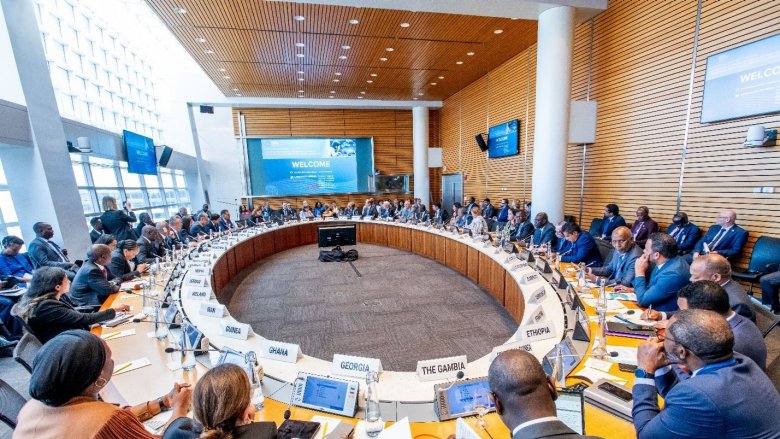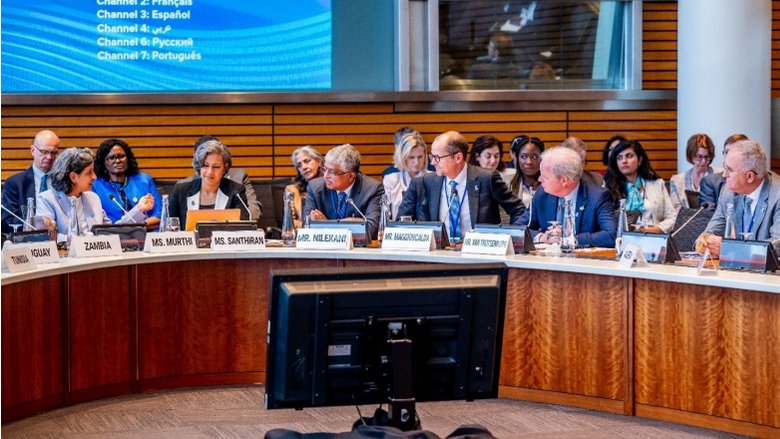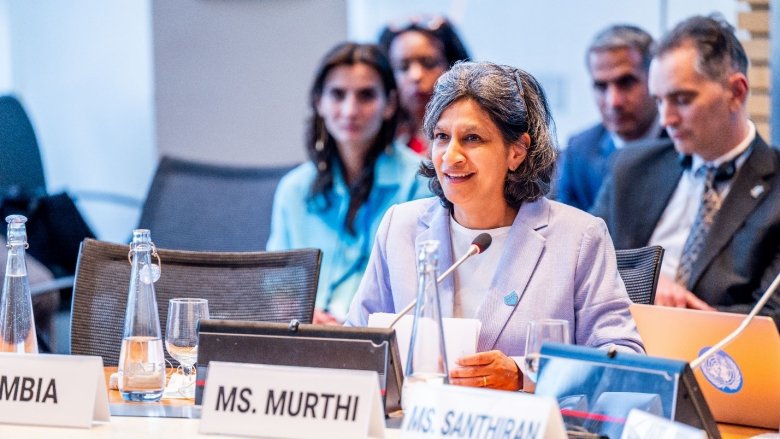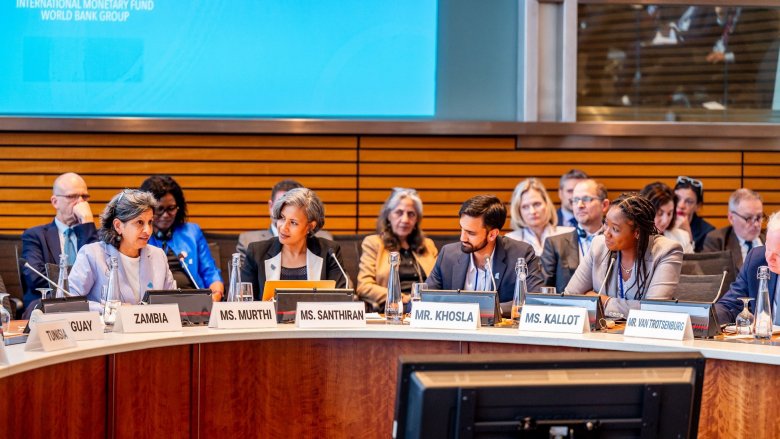At the Spring Meetings Human Capital Ministerial Conclave, leading voices in digital technology and artificial intelligence and ministers of finance from the World Bank��s Human Capital Network highlighted that technology can boost how countries build, use, and protect their human capital.
The 95-country Network is a unique global effort to accelerate investments in people.
The event kicked off with a discussion between Axel van Trotsenburg, the World Bank��s Senior Managing Director for Development Policy and Partnerships; Jeff Maggioncalda, CEO of online learning platform Coursera; and Nandan Nilekani, Infosys co-founder and Chairman of the Board.
The speakers focused on foundational infrastructure and skills �C starting from basic literacy and math combined with access to electricity and technologies �C to prepare people to make the most in training and finding jobs in the digital economy.
Van Trotsenburg pointed out that digital tools provide a ��fighting chance�� for those who might otherwise be left behind. He highlighted the global nature of talent, emphasizing that skills, not geography, should dictate opportunity.
Nilekani noted that that literacy creates the foundation for using technology and developing a continuous learning mindset. He stressed that while technology cannot replace human abilities to empathize, mentor, counsel, and collaborate �C it can support service delivery for human capital such as India��s digital ID Aadhaar extending financial inclusion and social protection. The potential of this application was also endorsed by Morocco, which uses similar technology to provide social benefits �C exemplifying the power of international collaboration.
Maggioncalda highlighted that with a strong human capital foundation, people can learn from anywhere while using AI to boost productivity and opportunities. ��Talent is global and not constrained by borders. More people will have meaningful economic opportunity without needing to move if they have the desire, skills, and work ethic.�� He noted that AI has helped reduce the cost of translating Coursera courses from $10,000 to $20 �C which has allowed them to make their content more accessible.





